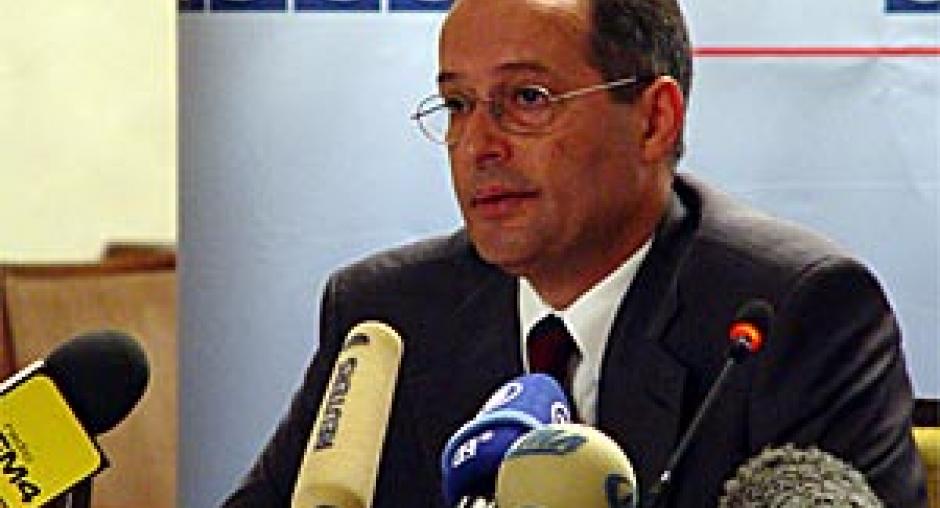OSCE media watchdog criticises Hungary over arbitrary harassment of journalist

VIENNA, 16 November 2004 - OSCE Representative on Freedom of the Media, Miklos Haraszti, has criticised the arbitrary prosecution of a Hungarian journalist under antiquated secrecy laws dating from 1976, which provide for a jail sentence of up to five years.
The journalist, Rita Csik, who works for the daily newspaper, Nepszava, was charged on 6 November with the "deliberate breach of a state secret", under chapter 221 of the Penal Code of Hungary.
Her alleged offence centres on a story she wrote in May 2004 quoting a police memorandum, which cited criminal evidence collected by the police on a Member of Parliament. The memorandum proposed lifting the MP's parliamentary immunity.
The Chief Prosecutor of Budapest, Sandor Ihasz, said in his indictment of the reporter that this memorandum was 'classified'.
The OSCE Media Freedom Representative described the indictment as "a serious threat to freedom of the press in many respects".
"Firstly, the accusation is arbitrary since, despite the frequent occurrence of similar situations, never in democratic Hungary has a journalist been indicted based on this obviously antiquated law," Haraszti said.
"Secondly, it is a direct harassment of the media since only the journalist has been charged whilst the Prosecutor has suspended any legal procedures against those who actually leaked this document."
"Thirdly, the document cannot even be called 'classified' within the meaning of the law, as was stated by no less a figure than the Parliamentary Commissioner for Data Protection and Freedom of Information. The unlawful classification was even removed by the National Commander of the Hungarian Police Force," he added.
"Finally, the document was not marked 'classified' on the copy that the newspaper obtained. Absurdly the prosecution maintains that the accused could have guessed from the contents of the memorandum that it was a 'classified' document."
In a letter to the Hungarian Foreign Minister, Ferenc Somogyi, the OSCE Media Freedom Representatives called the indictment "a dangerous attack against one of the basic freedoms (and obligations) of the press, which is to report on all facts and documents of public importance, in order to ensure there can be an open debate in society."
